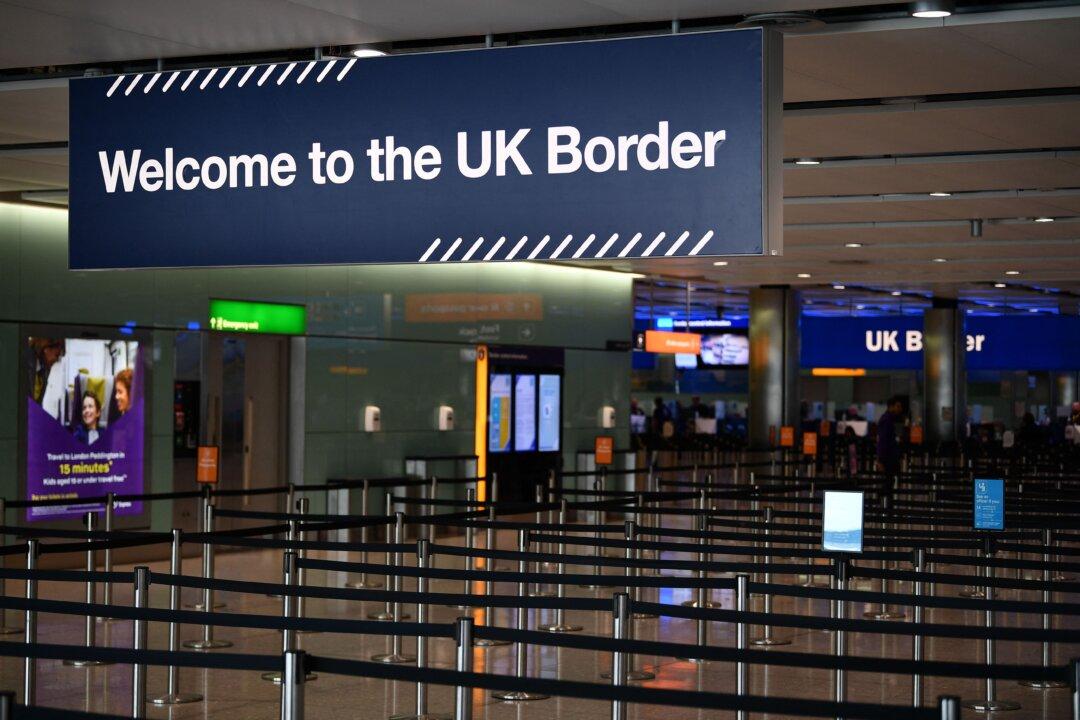The planned strikes by Border Force staff at UK airports would cause “undeniable, serious disruption” and people should “think carefully” about their Christmas travel plans, Home Secretary Suella Braverman has warned.
The Public and Commercial Services (PCS) union announced on Dec. 7 that its members working at Gatwick, Heathrow, Manchester, Birmingham, and Cardiff airports will strike for eight days from Dec. 23 to New Year’s Eve.





